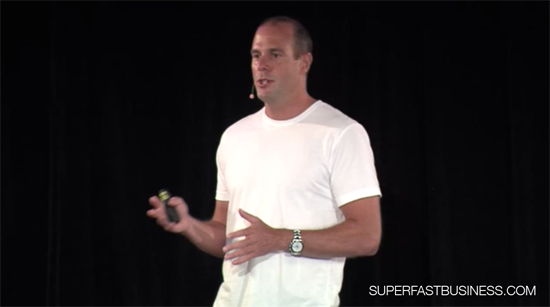How To Plan A Business Event
 Introduction
Introduction
James Schramko, founder of SuperFastBusiness, left his job as a high-end executive for Mercedes Benz to build his own company. His company specializes in two areas: products for the web, like website development and search engine optimization, and coaching entrepreneurs to help grow their businesses. SuperfastbusinessLive is an event James plans and hosts that flies in world class experts from around the globe to Sydney, including Taki Moore, Nathan Musson, and Buck Rizvi. These experts speak to business professionals about things like e-commerce, advertising, and how to plan a business event and grow your business to eight figures.
Get an Idea
First you need to come up with an idea – a theme. What is your message? What do you want to focus on? Once you decide on a theme it will be easier to think of topics to discuss and find speakers in relevant fields. Or, maybe even the topics will help you choose a theme if you know what you want to cover at the event. There are many areas you can cover, but a theme will help make your event a solid, cohesive unit for everyone involved.
Choose a Date
Settling on a date will help everyone who is interested create room in their schedule. Look at other popular events and when they’re scheduled to avoid conflicts in attendance. Choosing a date may seem simple enough, but there are other things to consider. The season alone can impact your choice, as many venues may already be booked for other events in a busy season (weddings, holiday parties, etc.), crowded with tourists, or cost more to book. The weather during a particular season should be considered. Winter can often lead to cheaper venues, but if your location is particularly cold or rainy that time of year, your attendees won’t want to travel there or socialise outside of the event. How long do you want your event to last – one day? Two days? Three days?
Book Your Speakers
Once a theme and date have been decided, you can start reaching out to experts in the field to gauge interest. Who will these experts be? Do your research. You’ll want speakers who are engaging, relevant, and informative. Create a talent brief to send to all your speakers so they can match their presentation to the event’s theme. You’ll need to come up with a schedule so you can work out who speaks in what slot, and then ensure it is sequenced and makes sense. Have a timekeeper in the front row to help keep you and your speakers on time.
 Book Your Crews
Book Your Crews
If you decide to host a large event of more than 100 people, not only will you need your own crew to help with set up, registration, and to keep things running smoothly during the event. This crew can help you execute the details, like a sales page, sponsorships, marketing plan, indemnity insurance, and merchandise. You’ll want to consider booking professional tech crews, like a videographer and lighting/staging crew. Often your venue will employ an in-house stage and lighting crew. It’s wise to use this team, as they’ll have more equipment on site and are familiar with the location. These technical crews will help make your event run smoothly and look professional. Their products will allow you to share your ideas and message with your attendees or future interested parties.
Secure the Venue
Once you’ve got a date, check out your venue options. Make sure you go through the contract with them very carefully, as there could be some clauses that could lead to them charging more money, such as locking in rooms, which is very popular in resort areas. Venues normally charge per person, especially with catering thrown into the contract. Catering is important to consider when you want to help your attendees socialise, but realise the cost it can add to your event.
James Schramko’s Advice
“Sell the event before you commit to buying it.” Once you have your idea, pitch it to others in the field who might be interested. Start small, maybe plan for a one-day event for a small group of six to 10 attendees. Only after you’ve sold tickets do you need to book the venue. James says, “get paid first, and then you can run the event.” If you don’t sell any tickets, you can always cancel. After you’ve held successful smaller events, you’ve gotten your feet wet and built your confidence, and it’s much easier to scale up to larger events.

